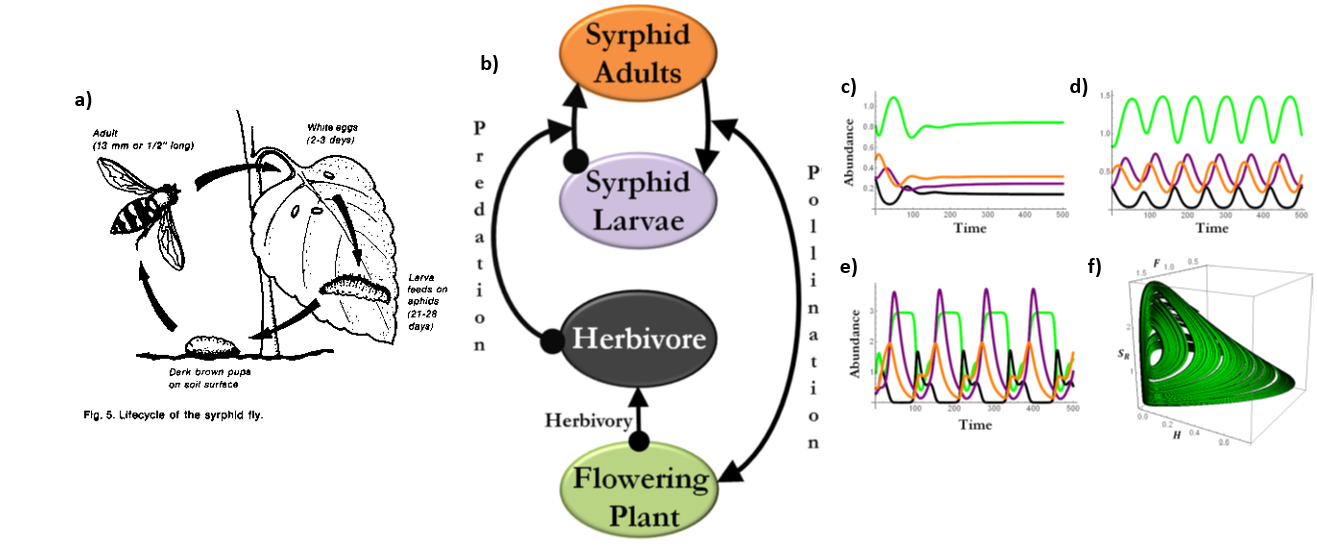Organismal Onogeny in Ecology
The term “organismal ontogeny” generally refers to the study of the entirety of an organism's lifespan. My interest in organismal ontogeny stems from my interest in how ontogeny interacts with broader ecology. In ecology, we often represent populations with a single equation in larger models of interacting populations. Depending on the modeling question or species, this can be a sufficiently powerful modeling tool. However, it does not account for demographic heterogeneity amongst subpopulations. This demographic heterogeneity can be especially important when different sub-populations have disparate ecological interactions that are ignored when using single homogenizing equations. For example, members of different age groups have unique interactions amongst their own species as well as between other species in trophic or mutualistic interactions. These kinds of differences in ecology across ontogeny are frequently modeled as unique stages in the life history of organism. Hence these models are also often called stage structured models, compartmental models, or even age-structured models.

I first encountered the importance of integrating this stage-structured ontogeny into ecological models when studying the pollinating syrphid fly (aka hover or flower fly). These flies have a larval stage that can be a ravenous predator on certain insect herbivores of the very flowering plants it pollinates as an adult (Fig 1a). Models of these systems which take the unique ecologies of each ontogenetic stage into account (Fig 1b) presented a much wider array of ecological dynamics (as shown in the time series in Fig 1c-1f).
This research is published in Theoretical Ecology and Oikos. More publications are currently in prep. These papers are also readily available on my Research Gate page. Please use Research Gate or my email to contact me regarding availability of any of my publications.